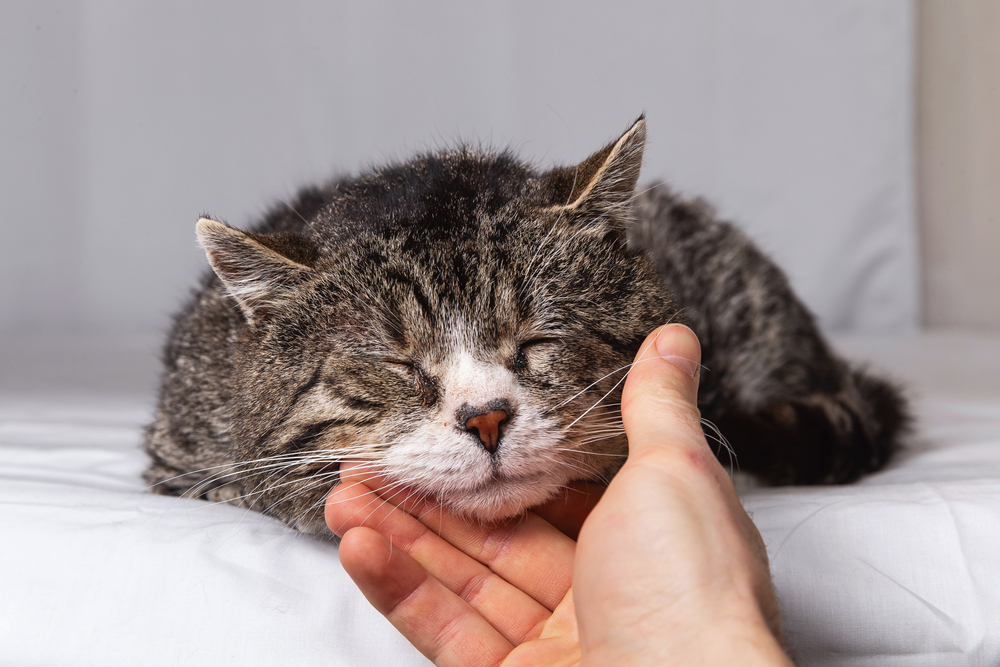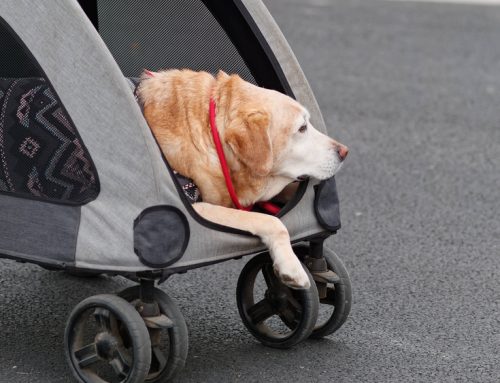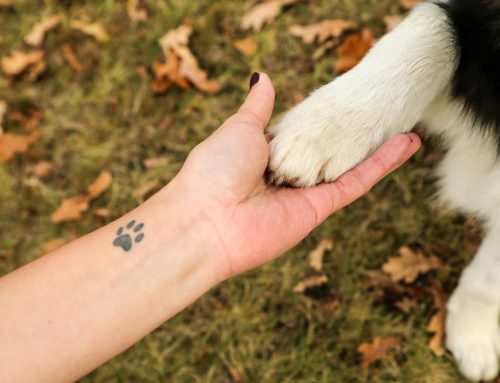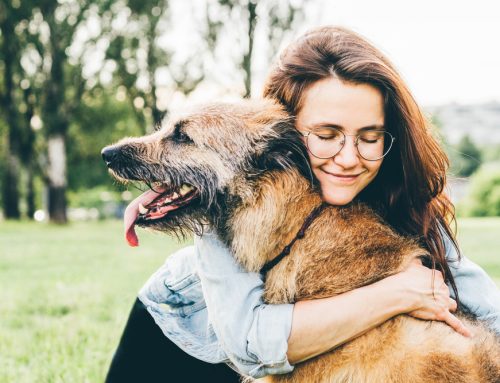The holidays are in full swing, and while the festivities are merry and joyous, they also pose potential hazards to pets. To keep their furry friends safe, pet owners must be more cautious than usual. Senior pets can be especially vulnerable to toxic treats, extreme weather, and socialization overload. Read our Fond Farewell team’s tips to ensure your senior pet has a holly jolly—and safe—holiday season.
#1: Reduce your senior pet’s pancreatitis risk
If they consume a large amount of fatty food, your pet can develop pancreatitis—inflammation of the organ that aids in food digestion and glucose regulation. Pancreatitis cases increase during the holidays, because families often indulge their furry friends with holiday treats, foods, and scraps. Avoid feeding your senior pet these high-fat foods:
- Turkey skin
- Gravy
- Bacon
- Ham
- Sausage
- Butter
- Desserts and sweets
- Fried foods
Some canine breeds, such as miniature schnauzers and poodles, and pets who have high cholesterol or are obese have a high pancreatitis risk. Pancreatitis signs include vomiting, abdominal pain, diarrhea, lethargy, and appetite loss, and their severity can vary.
#2: Keep your senior pet warm
Winter’s dropping temperatures and icy sidewalks pose multiple hazards to senior pets. If the outside temperatures are too cold for you, they are also too cold for your pet. Keep your senior pet inside when the temperatures are extreme, and never leave your four-legged friend unattended outdoors or in a parked vehicle during the winter. Senior pets have difficulty regulating their body temperature, and a warm sweater or jacket may be beneficial when they are outside relieving themselves or going for a walk when temperatures are low. You should also keep your pet away from walkway deicers, because they include chemicals that can injure your pet’s paws and cause illness if your four-legged friend ingests these toxins. In severe cases, kidney damage can occur. To protect your pet’s paw pads from deicers, massage them with petroleum jelly before going outside. Better yet, if your pet tolerates wearing them, booties provide a protective layer and additional traction. After a walk, use a towel and warm water to thoroughly clean your pet’s paws, and check for paw pad cracks and redness between their toes.
#3: Help your senior pet stay calm
The holidays can be stressful for people and pets. The excitement, large crowds, unfamiliar faces, and loud noise can be overwhelming—especially for highly anxious pets or those with a noise aversion. To help your senior pet relax during crowded and noisy holiday celebrations, provide them with a safe haven, such as a quiet room that includes a cozy bed, toys, and calm music. Highly anxious pets may benefit from anti-anxiety medication or calming supplements. Discuss these options with your veterinarian before the holidays, so they can determine the best option for your pet.
#4: Senior pet-proof your home
Your home is your senior pet’s sanctuary—the place they feel most comfortable. Ensure your senior pet can easily navigate your home by providing these simple modifications:
- Ramps — A senior pet with limited mobility may struggle to access their favorite napping spot on the couch or bed, so—to help them avoid climbing and jumping—install a ramp next to these furnishings.
- Pet gates — To prevent your senior pet from accessing dangerous home areas where they could fall or sustain an injury, put up get gates to keep them away from staircases and the kitchen.
- Nonslip rugs — Hardwood, tile, and laminate flooring can be too slick for your senior pet to traverse safely, so place nonslip runners and rugs over slippery home areas your pet uses.
- Orthopedic bed — Senior pets often suffer from painful joint inflammation and arthritis, and a firm, orthopedic bed can help support their aching joints.
#5: Maintain your senior pet’s health

As do people, pets require regular wellness examinations to maintain a good quality of life and overall wellbeing. As pets age, their illness risk greatly increases, and wellness examinations become increasingly important. Pets do not always show obvious illness signs, and cannot tell us when they are feeling unwell. As a responsible pet owner, your job is to ensure your four-legged friend stays healthy and comfortable throughout their life. The benefits of senior wellness exams include:
- Identifying health issues early
- Protecting your pet from parasites and infectious diseases
- Treating health conditions to keep your pet comfortable
- Saving you veterinary costs through early detection and treatment
The best gift you can give your senior pet this holiday season is a proactive approach to their health and longevity. However, if your senior pet just doesn’t enjoy the holidays as they once did, it may be time to assess their quality of life. We understand that the holidays are a difficult time to think about a declining pet’s last days. If you are concerned about your senior pet’s quality of life, contact our Fond Farewell team to discuss your concerns.















Leave A Comment